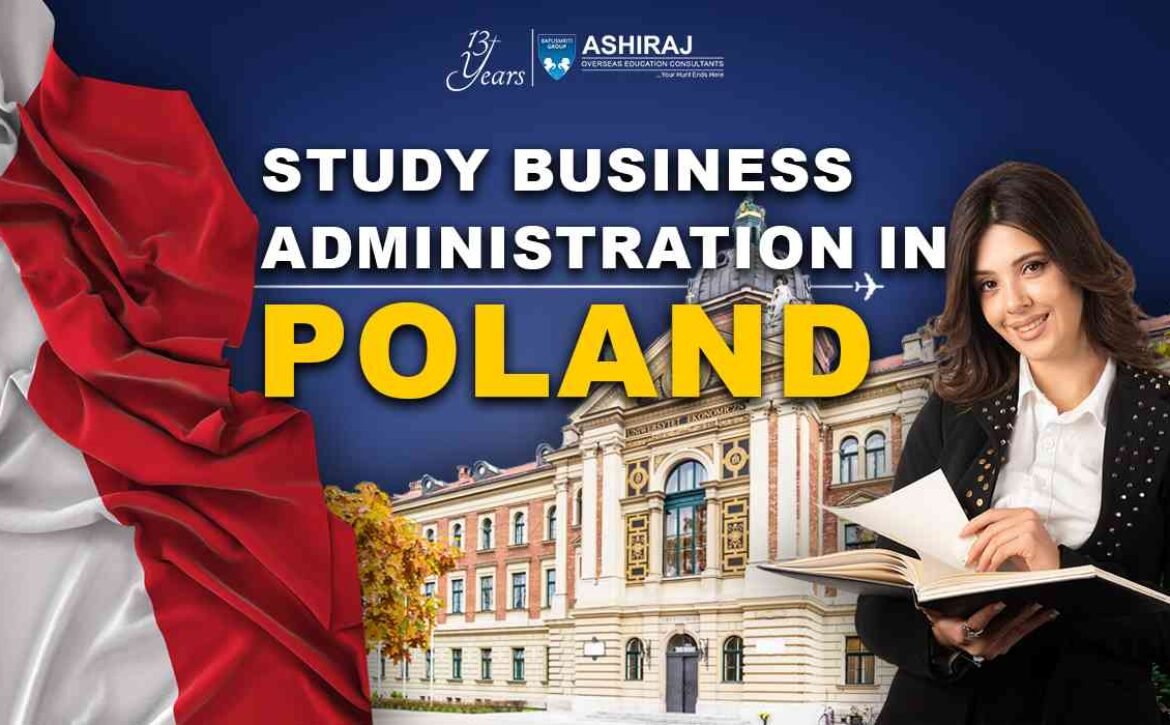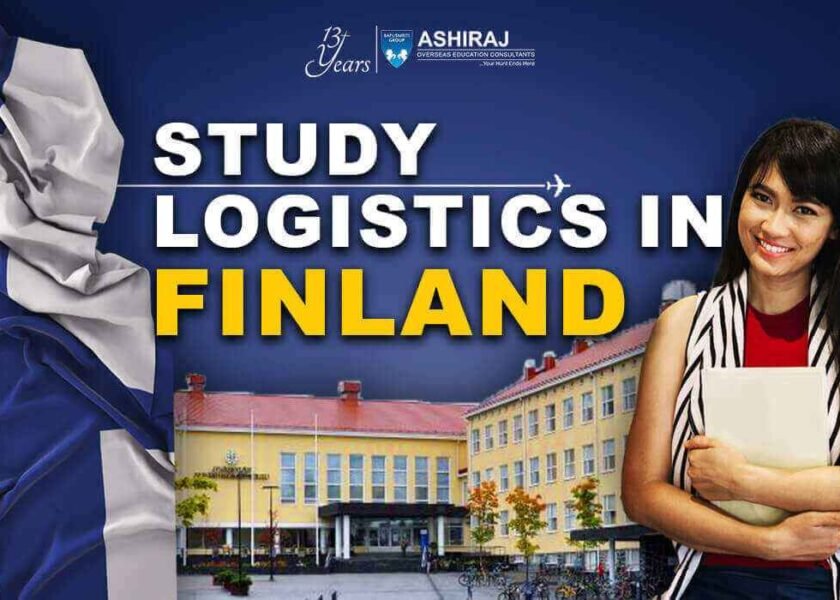
Business Administration in Poland
Business administration in Poland offers a dynamic landscape for aspiring professionals seeking opportunities in diverse sectors. With its strategic location in Central Europe, Poland serves as a gateway for businesses aiming to tap into the European market. The country’s robust economy, fueled by a skilled workforce and favorable business environment, attracts both domestic and international investors. Business administration programs in Poland provide comprehensive education, blending theoretical knowledge with practical skills essential for navigating the complexities of modern enterprises. Whether specializing in finance, marketing, or management, students benefit from innovative teaching methods and exposure to real-world challenges, preparing them for successful careers in the global marketplace.
In recent years, Poland has witnessed a surge in entrepreneurship and innovation, further enhancing the relevance and importance of business administration education. The country’s vibrant startup ecosystem and supportive government initiatives foster an environment conducive to business growth and development. Business administration in Poland equips individuals with the acumen to thrive in this dynamic landscape, instilling critical thinking, problem-solving, and leadership skills essential for driving organizational success. As Poland continues to assert its position as a key player in the European economy, the demand for skilled business administrators remains high, making it an attractive destination for both students and professionals seeking rewarding opportunities.
Why to Study Business Administration in Poland?
- Strategic Location: Positioned in Central Europe, Poland serves as a gateway to the European market, offering ample opportunities for business networking and expansion.
- Robust Economy: Poland boasts a strong and resilient economy, driven by skilled workforce and conducive business environment, ensuring ample job prospects and career growth.
- Comprehensive Education: Business administration programs in Poland provide a well-rounded education, blending theoretical knowledge with practical skills, preparing students for real-world challenges.
- Innovation and Entrepreneurship: Poland’s thriving startup ecosystem and supportive government policies encourage innovation and entrepreneurship, offering students opportunities to engage in hands-on learning experiences.
- International Perspective: Studying business administration in Poland exposes students to a diverse and multicultural environment, fostering cross-cultural understanding and global perspective.
- Networking Opportunities: With its bustling business environment, Poland offers abundant networking opportunities with industry professionals and potential employers.
- Affordable Education: Compared to other European countries, Poland offers relatively affordable tuition fees and cost of living, making it an attractive destination for international students.
In conclusion, studying business administration in Poland provides a unique blend of academic excellence, practical experience, and international exposure, setting students on a path towards successful and rewarding careers in the global marketplace.
Top Universities to Study Business Administration in Poland
University | QS World University Ranking 2023 | Type of University | Average Annual Fees | Programs Offered |
University of Warsaw | 301-350 | Public | $2,000 – $4,000 | Bachelor’s, Master’s, and PhD programs |
Warsaw School of Economics | 401-450 | Public | $1,500 – $3,000 | Bachelor’s and Master’s programs |
Jagiellonian University | 501-550 | Public | $2,000 – $4,000 | Bachelor’s, Master’s, and PhD programs |
Poznan University of Economics and Business | 551-600 | Public | $1,000 – $2,500 | Bachelor’s and Master’s programs |
Kozminski University | 601-650 | Private | $3,000 – $6,000 | Bachelor’s, Master’s, and MBA programs |
Business administration in Poland offers a range of options from prestigious public institutions to private universities. The University of Warsaw and Jagiellonian University, both highly ranked in QS World University Rankings 2023, provide comprehensive programs from bachelor’s to PhD level. Warsaw School of Economics is renowned for its focus on economics and business-related fields. For those seeking a more affordable option, Poznan University of Economics and Business offers quality education at a lower cost. Kozminski University, a private institution, stands out for its innovative approach to business education, including specialized MBA programs. With diverse options and varying fees, students can find the perfect fit for their academic and financial needs.
Course Curriculum for Business Administration in Poland
- Core Business Concepts: The curriculum covers fundamental principles of business, including management, finance, marketing, and operations, providing students with a solid foundation.
- Specialized Tracks: Students have the option to choose specialized tracks such as finance, marketing, entrepreneurship, or international business, tailoring their education to their career goals.
- Practical Experience: Emphasis is placed on practical learning through internships, case studies, and projects, allowing students to apply theoretical knowledge to real-world scenarios.
- Global Perspective: With an increasingly interconnected world, the curriculum incorporates global perspectives, exposing students to international business practices and cultural diversity.
- Technology Integration: Business administration programs in Poland integrate technology into coursework, teaching students how to leverage digital tools and analytics for business decision-making.
- Soft Skills Development: Alongside technical skills, emphasis is placed on soft skills development, including communication, leadership, critical thinking, and problem-solving, essential for success in today’s business environment.
- Ethical and Sustainable Practices: The curriculum often includes modules on business ethics and sustainability, preparing students to navigate ethical dilemmas and contribute to sustainable business practices.
Business administration in Poland offers a comprehensive curriculum designed to equip students with the knowledge, skills, and ethical values necessary to succeed in the dynamic and competitive global marketplace.
Eligibility Criteria & Admission Requirements for MS in Business Administration in Poland
- Language Proficiency: Applicants must demonstrate proficiency in English through standardized tests such as IELTS or TOEFL. Typically, a minimum score of 6.0 in IELTS or 80 in TOEFL is required for admission.
- Standardized Tests: Depending on the university, applicants may need to submit scores for either GRE or GMAT. A competitive score in these tests strengthens the application.
- Academic Qualifications: Applicants should hold a bachelor’s degree or equivalent in a relevant field from a recognized institution. Transcripts showcasing academic performance may be required.
- Passport & Student Visa: International students must possess a valid passport and obtain a student visa to study in Poland. Visa application procedures may vary, so it’s essential to check specific requirements.
- Work Experience: While not always mandatory, some universities may prefer applicants with relevant work experience in business or related fields. This can enhance the application profile.
Test | Minimum Score |
IELTS | 6.0 |
TOEFL | 80 |
GRE | Varies |
GMAT | Varies |
Business administration in Poland welcomes applicants who meet these eligibility criteria, ensuring a diverse and qualified student body ready to excel in their academic pursuits.
Documents Required for Studying Business Administration in Poland
- Passport: A valid passport is essential for international students applying to study business administration in Poland. It serves as identification and is necessary for visa processing.
- Letters of Recommendation (LOR): Typically, two letters of recommendation from academic or professional references are required to assess the applicant’s suitability for the program.
- Statement of Purpose (SOP): An SOP provides insights into the applicant’s academic and professional background, career aspirations, and reasons for choosing the specific program.
- Curriculum Vitae (CV): A detailed CV outlining the applicant’s educational qualifications, work experience, skills, achievements, and extracurricular activities is necessary.
- Official Transcripts: Official transcripts of high school or secondary education, as well as any higher education institutions attended, are required to evaluate academic performance.
- Educational Certificates: Copies of educational certificates, including degrees or diplomas obtained, are necessary for verification purposes.
- Work Experience Certificate: If applicable, a work experience certificate validating any relevant professional experience is required.
- Proof of Financial Resources: Applicants must demonstrate sufficient financial resources to cover tuition fees, living expenses, and other related costs for the duration of their studies in Poland.
Business administration in Poland requires applicants to submit these documents to complete the application process, ensuring all necessary information is provided for assessment and admission.
Admission Process for Business Administration in Poland
- Research Universities: Begin by researching universities in Poland offering business administration programs. Consider factors such as rankings, curriculum, faculty, and location.
- Check Eligibility: Ensure you meet the eligibility criteria, including language proficiency (IELTS or TOEFL), standardized test scores (GRE or GMAT), academic qualifications, and other requirements.
- Prepare Documents: Gather necessary documents such as passport, letters of recommendation (LOR), statement of purpose (SOP), curriculum vitae (CV), official transcripts, educational certificates, work experience certificates, and proof of financial resources.
- Submit Application: Complete the online application form provided by the chosen university, and upload required documents according to the instructions provided.
- Pay Application Fee: Some universities may require an application fee, so ensure to pay it along with your application submission.
- Wait for Response: After submitting your application, wait for the university’s response. This may include an acknowledgement of receipt of your application and further instructions.
- Interview (if required): Some universities may conduct interviews as part of the admission process. Prepare for the interview, if applicable.
- Receive Admission Decision: Once the university evaluates your application, you will receive an admission decision. If accepted, you will receive an offer letter.
- Accept Offer and Apply for Visa: Upon acceptance, confirm your acceptance of the offer and proceed to apply for a student visa, if required.
- Prepare for Departure: Once you have obtained your visa (if applicable), make necessary arrangements for accommodation, travel, and other logistics before starting your business administration program in Poland.
Business administration in Poland involves a systematic admission process ensuring that prospective students meet eligibility criteria and provide the necessary documentation for assessment and enrollment.
“Education is the most powerful weapon which you can use to change the world.”
Nelson Mandela
Cost of Business Administration Course in Poland
- Tuition Fees: Tuition fees for business administration programs in Poland vary depending on the university, program duration, and whether it’s a public or private institution. On average, tuition fees range from $2,000 to $6,000 per year for international students.
- Living Expenses: Living expenses including accommodation, food, transportation, and other personal expenses should also be considered. The cost of living in Poland is relatively affordable compared to other European countries, with expenses varying based on the city and lifestyle.
- Scholarships and Financial Aid: Many universities in Poland offer scholarships and financial aid to international students based on academic merit, financial need, or other criteria. It’s advisable to explore these options to offset the overall cost of studying.
- Part-time Work Opportunities: International students are allowed to work part-time while studying in Poland, which can help cover living expenses. However, it’s important to balance work commitments with academic responsibilities.
- Health Insurance: Health insurance is mandatory for international students studying in Poland. The cost of health insurance varies depending on the coverage and provider.
- Additional Expenses: Additional expenses may include visa application fees, travel expenses, books, study materials, and extracurricular activities.
Business administration in Poland offers an affordable option for international students seeking quality education in a vibrant European setting. By considering tuition fees, living expenses, scholarships, and part-time work opportunities, students can effectively plan their budget for studying in Poland.
Scholarships for Business Administration Courses in Poland
Scholarship Name | Amount | Application Deadline | Eligibility Criteria |
Polish Government Scholarships | Varies | May 31 | Open to international students applying for full-time bachelor’s, master’s, or doctoral studies in Poland. Applicants must meet academic requirements and submit required documents. |
Erasmus+ Scholarships | Varies | Varies | Available for students from EU and non-EU countries participating in the Erasmus+ program. Criteria include academic performance, language proficiency, and program of study. Application deadlines vary depending on the specific Erasmus+ scholarship program. |
University-specific Scholarships | Varies | Varies | Many universities in Poland offer their own scholarships for international students studying business administration. Amounts and eligibility criteria vary by institution. Check with individual universities for specific scholarship opportunities and deadlines. |
Business administration in Poland offers various scholarship opportunities to assist students with the cost of education. These scholarships are available from the Polish government, the Erasmus+ program, and individual universities. Eligibility criteria typically include academic performance, language proficiency, and program of study. Applicants should carefully review the requirements and deadlines for each scholarship to maximize their chances of receiving financial assistance for their studies in Poland.
Career Opportunities After Business Administration in Poland
Job Profile | Average Salary (per year) |
Marketing Manager | $30,000 – $50,000 |
Financial Analyst | $35,000 – $55,000 |
Human Resources Manager | $25,000 – $45,000 |
Operations Manager | $40,000 – $60,000 |
Business Development Manager | $35,000 – $55,000 |
Business administration in Poland opens doors to diverse career opportunities across various industries. Graduates can pursue roles such as Marketing Manager, Financial Analyst, Human Resources Manager, Operations Manager, or Business Development Manager. Marketing Managers devise strategies to promote products or services, with an average salary ranging from $30,000 to $50,000 per year. Financial Analysts assess financial data and trends, earning between $35,000 and $55,000 annually. Human Resources Managers oversee recruitment, training, and employee relations, with salaries averaging between $25,000 and $45,000 per year. Operations Managers ensure smooth business operations, earning approximately $40,000 to $60,000 annually. Business Development Managers focus on expanding business opportunities, with salaries ranging from $35,000 to $55,000 per year. With competitive salaries and opportunities for advancement, business administration graduates in Poland can build rewarding careers in a dynamic and growing economy.
Frequently Asked Questions About Business Administration in Poland
Admission requirements typically include a bachelor’s degree or equivalent, language proficiency (usually demonstrated through IELTS or TOEFL scores), standardized test scores (such as GRE or GMAT), letters of recommendation, statement of purpose, and academic transcripts.
Yes, there are various scholarships available for international students, including those offered by the Polish government, Erasmus+, and university-specific scholarships. Eligibility criteria and application deadlines vary, so it’s essential to research and apply accordingly.
The duration varies depending on the level of study. Bachelor’s programs typically last for 3-4 years, while master’s programs can range from 1-2 years. PhD programs may take 3-4 years to complete.
Yes, international students can work part-time during their studies in Poland. However, there are limitations on the number of hours they can work per week, usually up to 20 hours during the academic year and full-time during holidays.
While some universities may offer programs in English, it’s beneficial to have basic knowledge of the Polish language for daily life. However, proficiency in English is the primary language requirement for most business administration programs.
The cost of living in Poland is relatively affordable compared to other European countries. On average, international students can expect to spend between $500 to $800 per month on accommodation, food, transportation, and other expenses.
Yes, many business administration programs in Poland offer internship opportunities as part of the curriculum. Internships provide valuable practical experience and networking opportunities for students.
Graduates can pursue various career paths, including roles in marketing, finance, human resources, operations, and business development. Salaries vary depending on the job role, experience, and industry.
Yes, international students from non-EU/EEA countries need to obtain a student visa to study in Poland. The visa application process involves submitting required documents, including an acceptance letter from the university and proof of financial means.
Yes, it is possible to apply for permanent residency in Poland after completing higher education studies and meeting certain criteria, such as holding a valid residence permit, having stable income, and residing continuously in Poland for a specified period.




